
- Augusta University
- Georgia Cancer Center
- Community Connections
- Teledermatology
- Teledermatology Serving Your Community
Teledermatology Serving Your Community
The goal of our project, Teledermatology Serving Georgia, is to bring skin cancer screening and education to Georgia’s citizens living in rural or remote areas of our state, without easy access to dermatological services.
What can Teledermatology do for you? Community Educational Material Photo Gallery
Contact Us
Georgia Cancer Center
Health Sciences Campus
GCC - M. Bert Storey Research Building
(706) 721-0570
What can Teledermatology do for YOU?
Skin Cancer Prevention
There are a number of reasons why some people may be at higher risk of developing skin cancer than others. We want you to know about your risk factors and what you can do to avoid developing skin cancers or other skin disorders. Part of our Teledermatology program is to provide our community members with educational tools about skin cancer prevention as well as about other more common cancers (e.g., breast cancer, lung cancer, colon cancer) and how to avoid them (e.g., healthy eating, exercise, and quitting tobacco use and vaping).
-
See our links to the information that you can read on your own electronic devices (computer, smartphone, or tablet).
Community Educational Material
To learn about specific cancers & cancer-related topics, including risk factors, early detection, diagnosis, & treatment options.
Photo Gallery
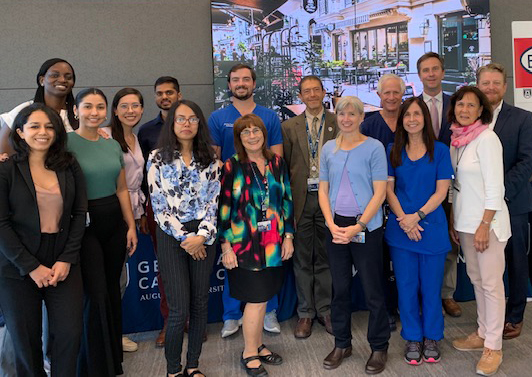
A TeleDerm Celebration! (From L-R (Front Row) - Kenza Mamouni, Marisol Miranda Galvis, Sayeda Ali, Rhea-Beth Markowitz, Lisa Middleton, Margaret Oliviero, Christine O'Meara (Back Row) - Lorriane Odhiambo, Claudia Guillen Lopez, Koosh Desai, Jeremy Greer, Jorge Cortes, Harold Rabinovitz, Al Dallas, Aaron Hersh)
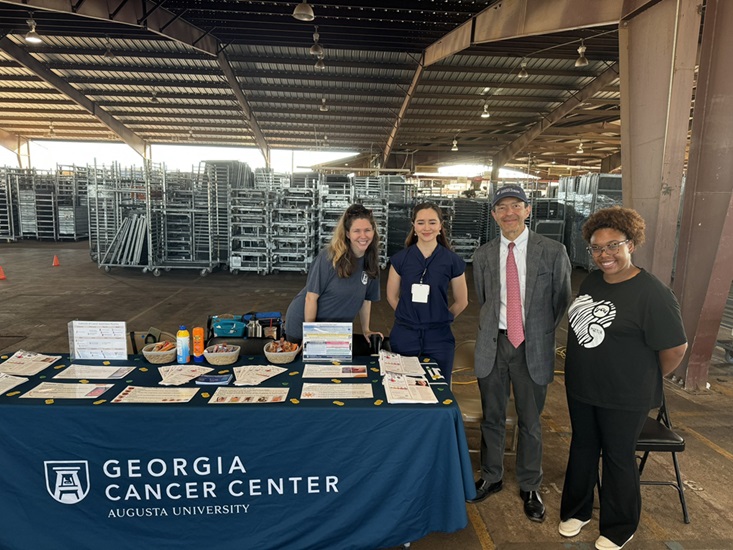
Maryclaire Regan, Dr. Brenda Santellano, Dr. Jorge Cortes, and Nyree Riley at Costa Layman Health Fair, 2024
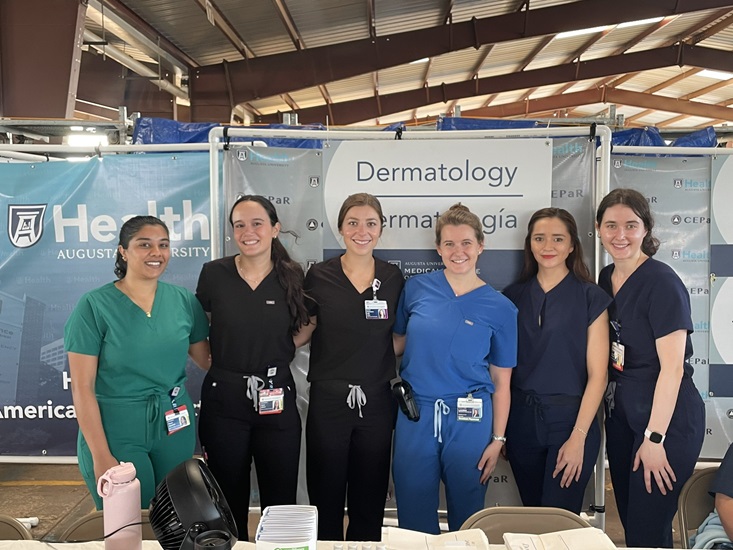
Dr. Brenda Santellano (2nd from right) and students at Costa Layman Health Fair, 2023
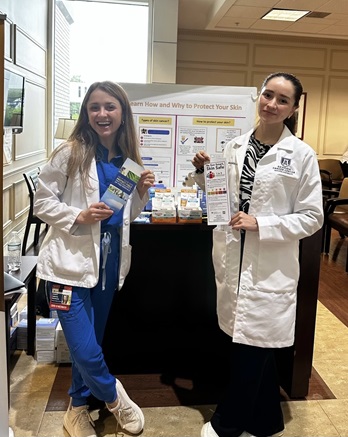
Medical student Gabby Duchesne and Dr. Brenda Santellano at ALAS Health Fair, 2023
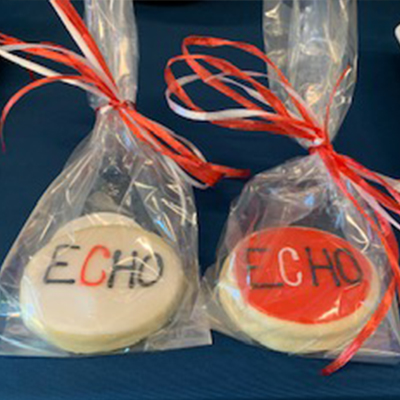
A TeleDerm Celebration! ECHO cookies
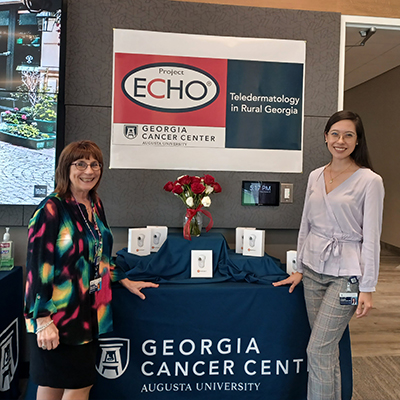
A TeleDerm Celebration! (From L-R: Rhea-Beth Markowitz and Claudia Guillen Lopez)
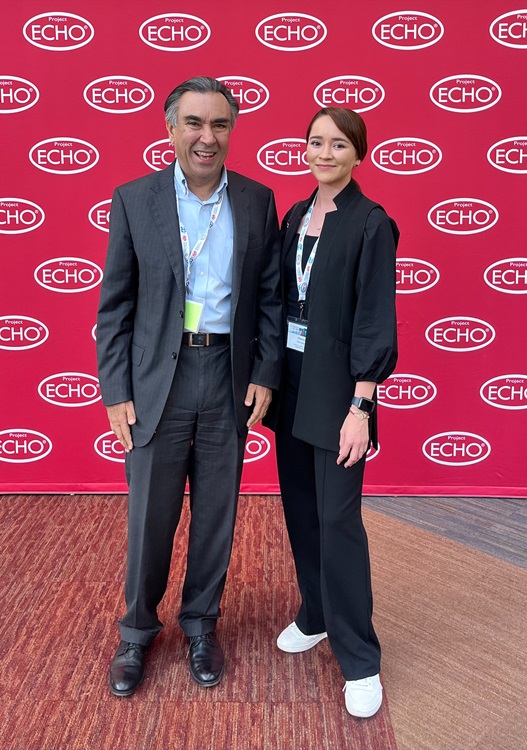
Dr. Sanjeev Arora, founder of Project ECHO, and Dr. Brenda Santellano at MetaECHO Global Conference, 2023
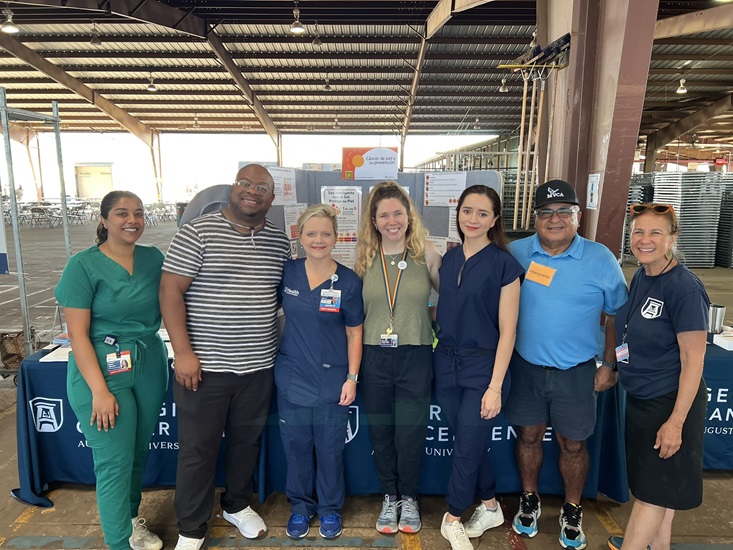
Georgia Cancer Center team at Costa Layman Health Fair, 2023
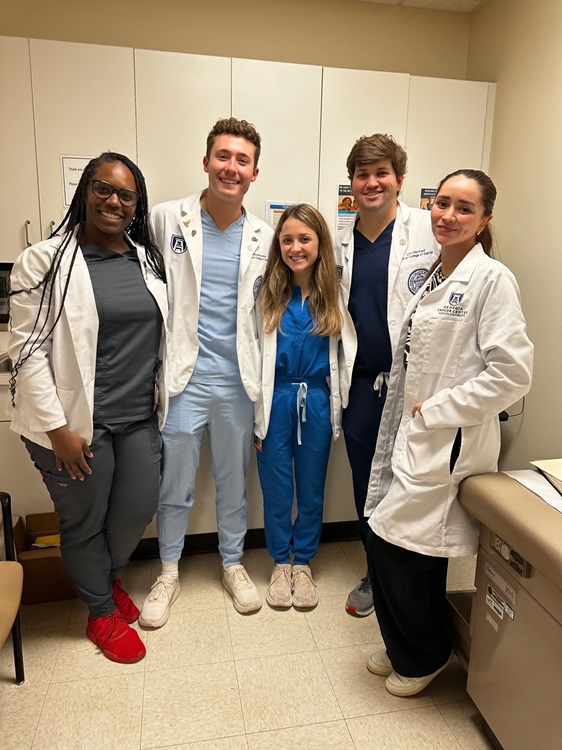
Dr. Santellano (right) and medical students at ALAS Health Fair, 2023
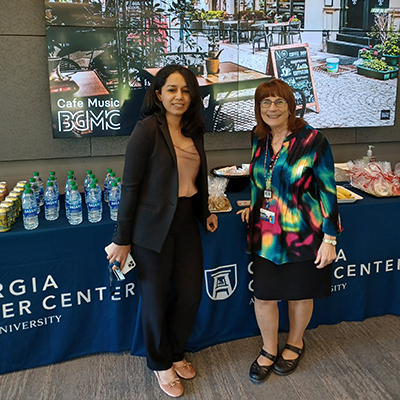
A TeleDerm Celebration! (From L-R: Kenza Mamouni and Rhea-Beth Markowitz)
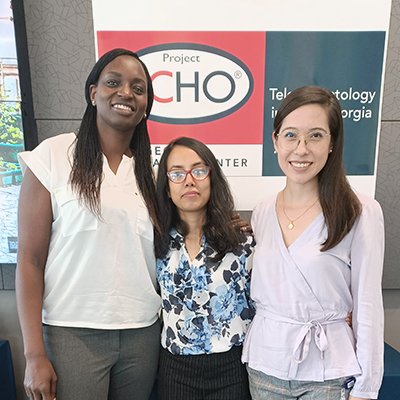
A TeleDerm Celebration! (From L-R: Lorriane Odhiambo, Sayeda Ali and Claudia Guillen Lopez)
Reduce the Burden
The Georgia Cancer Center at Augusta University is dedicated to reducing the burden of cancer in Georgia and across the globe through superior care, innovation, and education. Through unprecedented expansion, the Georgia Cancer Center is providing access to more first-in-the-nation clinical trials, world-renowned experts and life-saving options.
Follow the Georgia Cancer Center